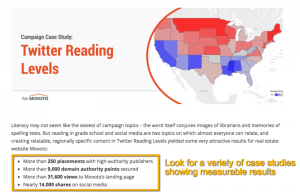— September 25, 2018

Free-Photos / Pixabay
When you are interviewing for a new job, you might be asked: “Where do you see yourself in five years time?”. You might not know where you will be career-wise next year not to mind in five years time.
If you do or do not know where you will be it is important to tailor your answer to the job in which you are going for. This question is popular amongst interviewers and hiring managers to get an understanding of your career ambitions to match those of the companies.
Advice for answering questions about your future
Being asked about your future plans is one of the trickier questions you can be asked. Make sure to be honest but at the same time make sure you keep it related to the job and industry. For example, don’t discuss how you plan on running your fastest marathon time in the next few years if you’re going for a job as a Digital Marketer.
All the same, you want to get a good answer across. Replying inadequately or being very unclear with your answer could make interviewers think that you’re not very interested in your career, aren’t a right fit for the business or else you may be hiding something. Check out these tips on answering questions about the next phase in your career, while asserting your interest in the position you are being interviewed for.
Outline a Career Path
To be well versed for this question, look into a career path which tends to follow from the job that you are applying for. How long does one generally tend to stay in that role? What are the next stages to take within five years?
Many companies clearly outline pathways in the career sector of their website. Nonetheless, you might have to reach out to experts in the relevant line of work through connections. Be it, family, friends, alumni or other professionals in the area to get a greater understanding of the career path people tend to follow.
For example. If you’re a Marketing Assistant applying for a Marketing Executive job and your goal is then become a Marketing Manager. You should research the company to see if many marketers move up the ranks and become Marketing Managers in the company.
Begin by looking for Marketing Manager positions on the companies careers site, to check if the business is actively hiring. Then have a look at LinkedIn profiles of Marketing Managers currently working at the organization. If this is a likely career path, your research should show that employees typically make that move.
Example: I’m keen to continue improving my digital marketing skills in this new role. I have noticed that a lot of people at the company have moved from Marketing Executives to Marketing Managers and that is definitely something that would be of interest to me as part of my 5-year plan.
Start with your interest in the job
It would be best to mention that you want to master the current role you are interviewing for before deciding to move on. If it looks like you are getting ahead of yourself then the employers might wonder are you really that enthusiastic about carrying out the duties of the job they are hiring for.
In any case, the hiring manager will probably want someone who’ll be pleased to be in that position for a year or two. Incorporating a clear logic into your response about how your interests and skills equip you to do the job can help to ease any concerns about how long you’ll want to stay at the job.
Example:
One of the reasons that attracted me to the job was the chance to cover several different aspects of Digital Marketing. Working as a Marketing Assistant, I feel I’d have a great chance to continue to put my SEO skills to use in enhancing the businesses website. I’m also eager to find out more about PPC.
When There is No Defined Career Path
Not every job gives you an opportunity to move onto more senior positions. For example, careers such as sales, computer programming, teaching and event planning. It would be good to mention that you really want to become proficient in the job as your 5-year goal.
Consider the parts of the job you could really master. For example, when interviewing for a sales role, you could mention:
In the next five years, I would hope to be seen as a specialist when it comes to product information. Build up very good relations with customers, increase business in my area, and be given the responsibility to attract major international business.
Goals = Results
Sometimes it’s best to take a different approach and go with a goal orientated approach. So, for example, if you are a Secondary Teacher mention how you want to improve the percentages of students results in the leaving certificate.
Using this type of approach, you will have to give examples of how you would go about achieving this.
Going Up the Career Ladder
In a number of jobs, you are expected to move on after a couple of years. For example jobs such as engineering, analyst roles, and science jobs. In these circumstances, you will have more scope in your answers. However, you will still want to ascertain how the role at hand makes sense given the skills and interests you can bring to the company.
Business & Finance Articles on Business 2 Community
(84)





